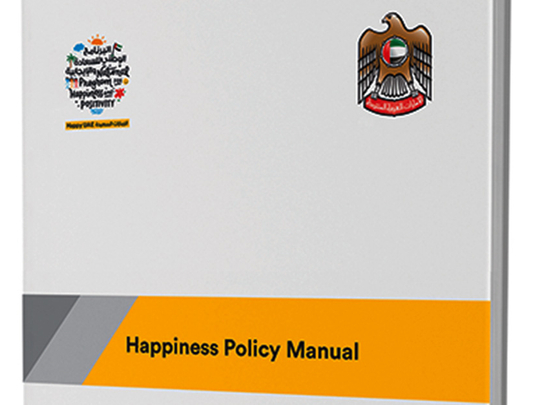
Dubai: The UAE Government has launched a Happiness Policy Manual for government establishments to prioritise people’s happiness, it was announced on Saturday.
Uhoud Bint Khalfan Al Roumi, Minister of State for Happiness and Quality of Life, described the manual, developed under the National Programme for Happiness and Positivity, as the first of its kind in the world.
She said the manual seeks, first and foremost, to introduce the “science of happiness” in the policy-making process, proposing innovative ways to incorporate it into current and future public policies and then evaluating their effect on the happiness and well-being of society.
Al Roumi added: “The manual balances personal happiness with societal aspects. It complements the National Programme for Happiness and Positivity’s efforts to empower government entities by providing practical instruments for them to harmonise their policies and steer them towards achieving nationwide happiness.”
She urged all government departments to benefit from the tools and concepts provided in the manual to incorporate happiness into their policies and programmes and evaluate their effects on target segments.
The national programme recently organised a workshop for around 100 federal policymakers to introduce the manual. The workshop included a discussion by Paul Dolan, Professor of Behavioural Science at the London School of Economics, during which he presented a number of approaches to centre government policies around happiness, illustrating them with examples of success stories that underline the role of behavioural shifts on public happiness.
The manual provides a systemic and practical explanation of happiness, and details tools to quantify and evaluate it. It seeks to incorporate happiness into all stages of policy-making — formulation, assessment and implementation.
It simplifies measuring of public happiness for policymakers, and explains the different aspects of happiness that can be measured and quantified, such as evaluative happiness, effective happiness, eudemonic happiness, and happiness related to public policy domains.
Policy formulation
The policy formulation stage is a major step, one that is guided by the scientific fundamentals of happiness as the government entity in question prepares initiatives to increase happiness.
Policy assessment
The policy assessment phase consists of an exhaustive evaluation of the expected impact of the policy using the Happiness Impact Assessment Tool — an instrument that assesses the impact of policies on the happiness of the wider community and the expected duration of this effect.
The Assessment Tool includes six evaluation criteria: economy, health, education, society and culture, government services and governance, and environment and infrastructure. It evaluates the impact on happiness of policies on each of these domains, to ensure that happiness is viewed holistically. This stage also looks at cost-effectiveness and the cost-to-benefit analysis from a happiness perspective.
Policy implementation
The manual addresses the ways in which policies are implemented, monitored and evaluated. The policy implementation phase involves rolling out the policy and measuring on-the-ground outcomes against the projections from the policy assessment phase to evaluate its real effects on happiness using accurate, pertinent pilots. This phase also includes assessing the extent and impact of any unintended negative consequences on the happiness of the society and corrective measures to mitigate them.












